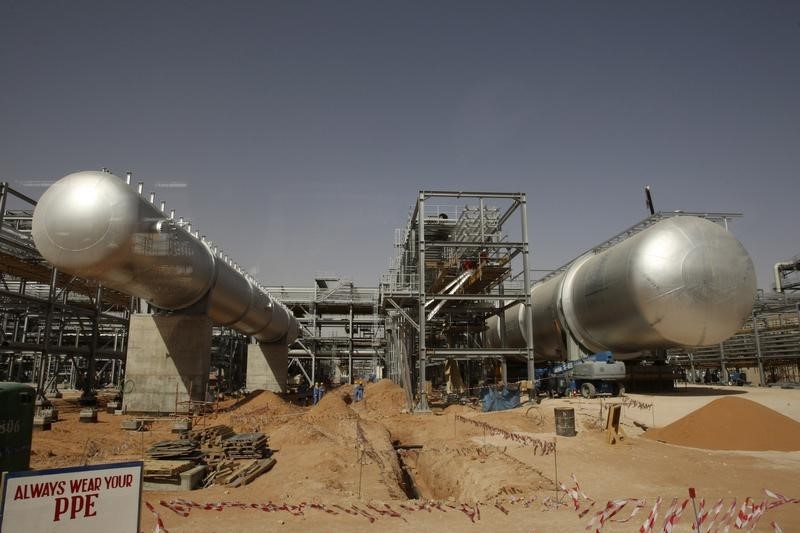Investing.com - Crude oil prices rebounded in Asia on Tuesday as investors deemed a selloff based on a trove of bearish news, from Greece's 'No' vote and China's stock market woes to an OPEC production surge, overdone.
Investors will also look ahead as the American Petroleum Institute will release its estimates of weekly stocks of crude and refined products last week in the U.S., while more closely-watched figures from the U.S. Department of Energy are due on Wednesday.
On the New York Mercantile Exchange, WTI crude for August delivery jumped 0.79% to $52.95 a barrel.
A report released by Platts on Monday found that Opec production last month continued its upswing to remain at its highest level since October, 2012.
In June, output by the world's largest oil cartel increased by 170,000 to 31.28 million barrels per day, nearly 1.3 million bpd above its targeted production ceiling of 30 million, Platts said.
Overnight, crude futures plummeted on Monday to its lowest level in more than three months, as the continuation of Greek and Iranian negotiations, as well as concerns in China remained in focus.
On the Intercontinental Exchange (ICE), Brent crude for August delivery also fell more than 6% to an intraday low of $56.40 a barrel, before rallying mildly to $56.55 a barrel at the close Monday.
One day after Greek voters rejected a latest proposal from its international creditors in a historic referendum, controversial finance minister Yanis Varoufakis stepped down from his post on Monday in a move that could appease the nation's negotiating partners. Hours later, the Greek government announced that Euclid Tsakalotos will be sworn in as the nation's next finance minister on Monday evening. Tsakalotos, an Oxford-educated economist, will represent Greece in an emergency meeting of euro zone finance ministers on Tuesday in Brussels.
Meanwhile, U.S. Secretary of State John Kerry said he is unsure if a final nuclear agreement with Iran can be reached by Tuesday's deadline, as difficult issues remain in discussions with the Gulf state. In addition, Iran is pushing for comprehensive arms sanctions to be lifted by the United Nations in exchange for reaching an accord.
A nuclear deal is viewed as bearish for crude, as Iran reportedly hoards 30 million barrels of crude in its reserves ready for export. An outflow of Iranian oil could depress crude price in a global market already oversaturated by a glut of oversupply. It is widely believed that Iran will ramp up exports if a plethora of severe economic sanctions are lifted by western powers.
In its latest weekly report, the U.S. Energy Information Administration (EIA) said last week that U.S. crude inventories rose by 2.4 million barrels, halting an eight week streak of weekly draws. A day later, oil services firm Baker Hughes (NYSE:NYSE:BHI) reported that U.S. oil rigs increased by 12 to 640, ending a 29-week streak of declining stockpiles. As a result, crude futures have declined by nearly 12% over the last week.
Also on Monday, the Chinese government rolled out a host of emergency measures to support its floundering stock market. Chinese stocks are down by approximately 30% since early-June amid the slowest economic growth in the nation in over a decade. In April, China overtook the U.S. as the world's largest importer of crude.
